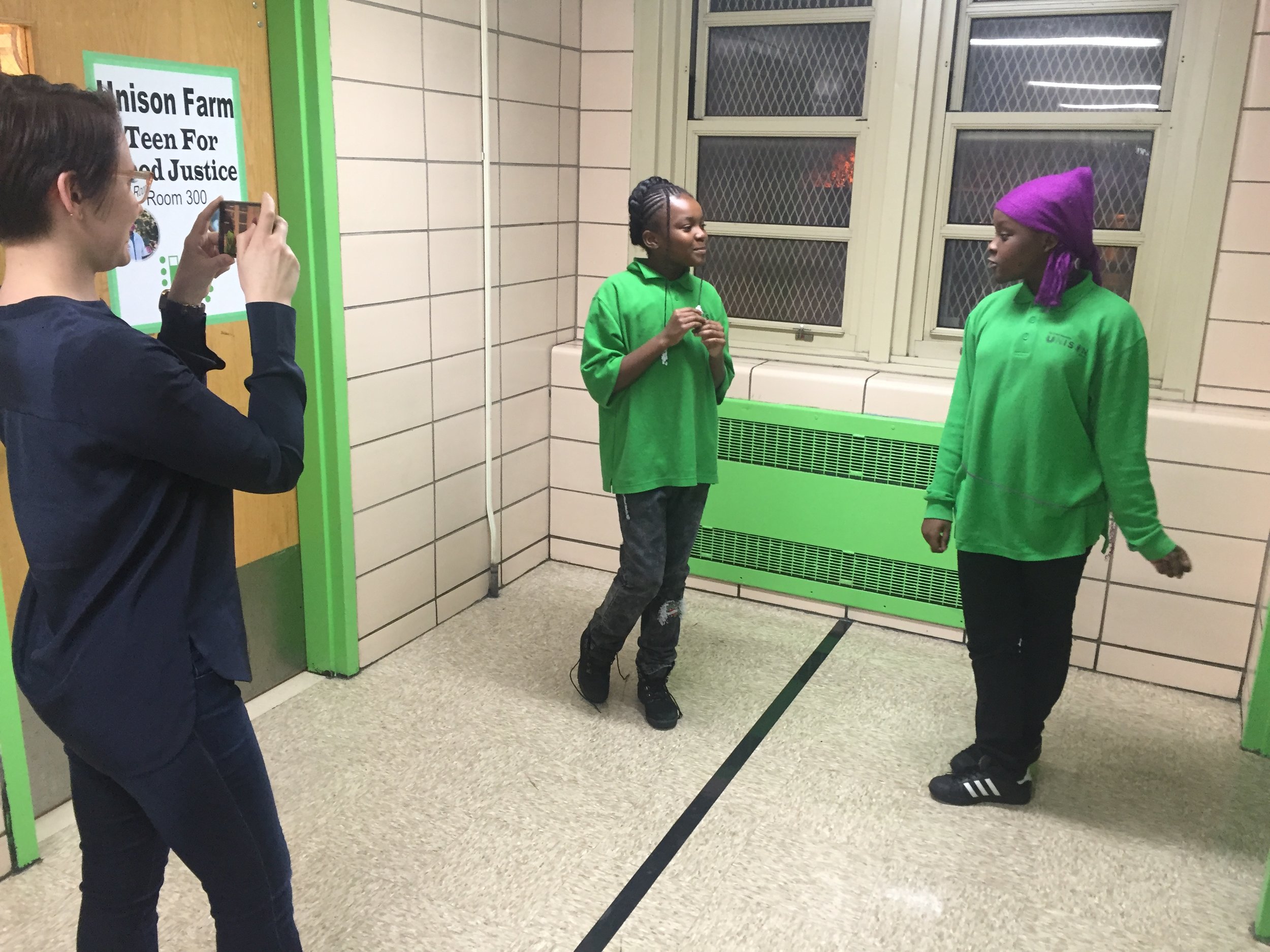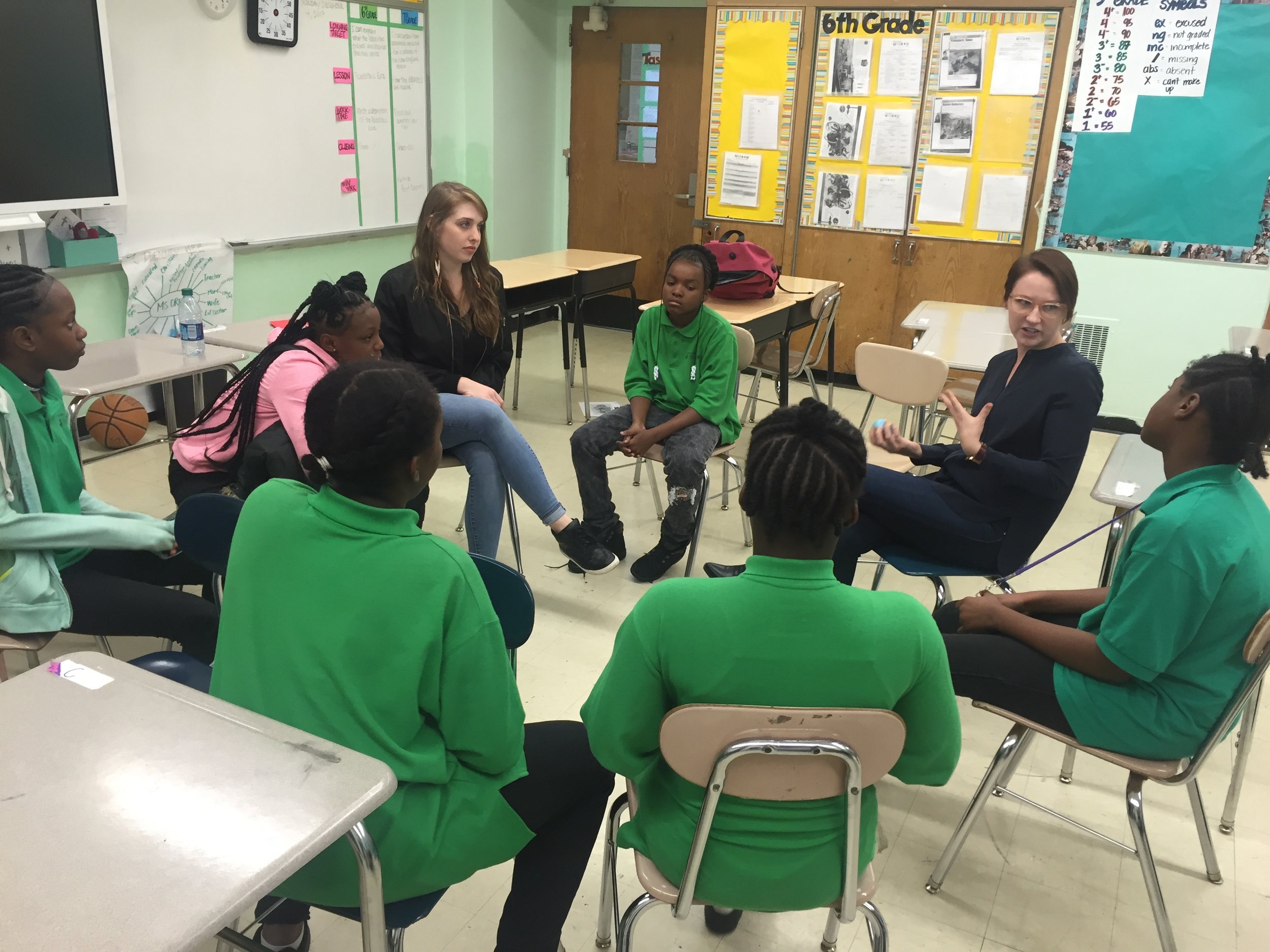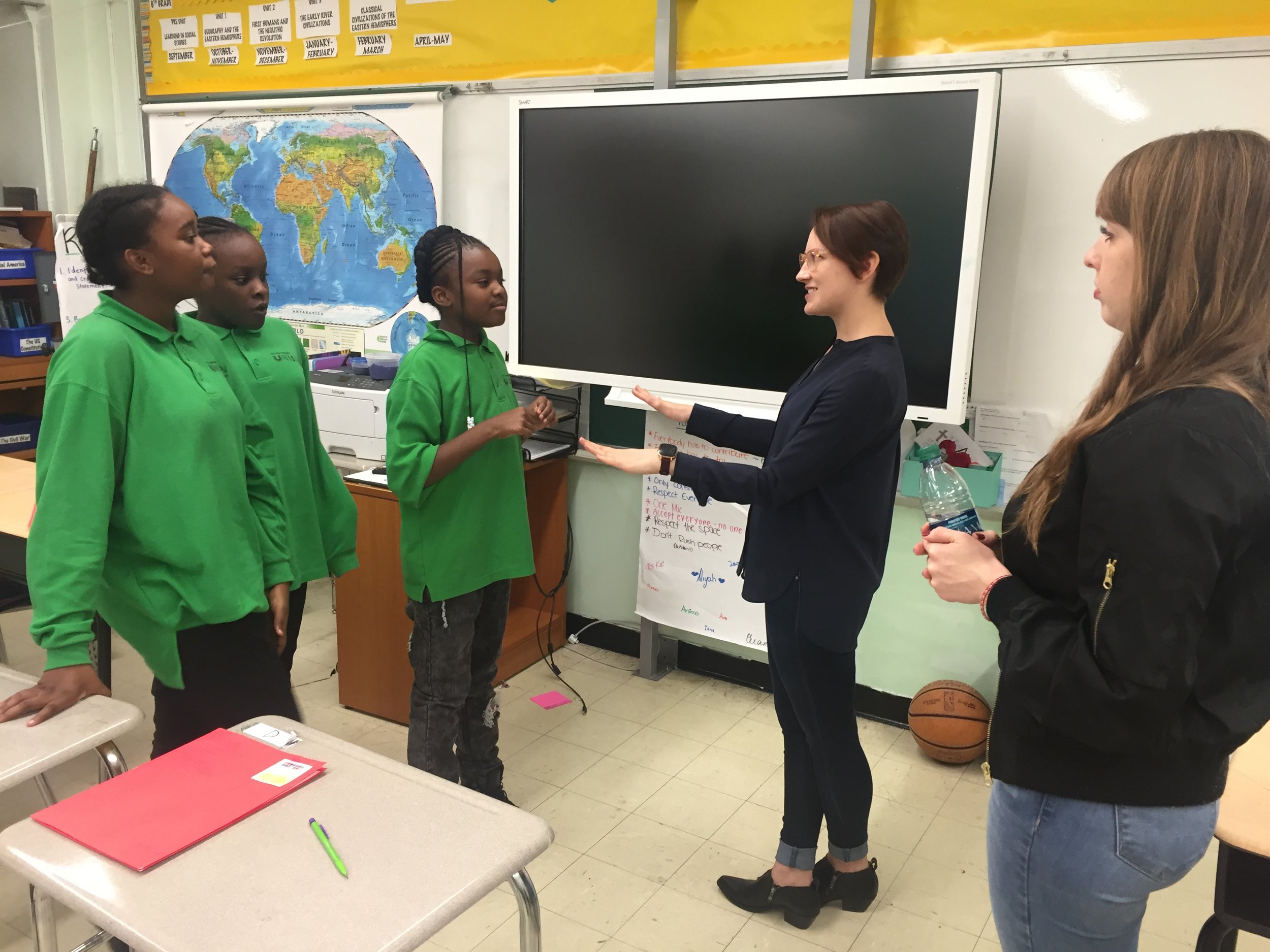Empowering “Girls in Charge” to Become Women in Charge
Guest Post By: Lucy Vasserman, Google - Current Volunteer Citizen Teacher and Citizen Schools New York Board of Advocates Member
These opinions are my own and not meant to officially represent Google.
Lucy Vasserman is a Software Engineer at Jigsaw, Alphabet's incubator focused on tech products to make the world safer. She works on the Conversation AI team, which uses machine learning to improve conversations online. Prior to Conversation AI, Lucy worked on machine learning research and engineering for several other Google teams including Speech Recognition and Google Shopping. Lucy is passionate about computer science education and spent fall 2015 teaching computer science full-time at Xavier University in New Orleans through the Google in Residence program, a partnership between Google and Historically Black Colleges and Universities. In addition to being a Citizen Teacher with Citizen Schools, Lucy also serves on Citizen Schools' Board of Advocates. Lucy received her B.A. in Computer Science from Pomona College.
I am a software engineer at Google. I teach with Citizen Schools because, as a woman in a male-dominated field, I know personally just how important education is to empowering women and minorities to join the tech industry. I was lucky enough to have my first computer science class in 5th grade at my all-girls school, which meant that I knew what computer science was, and that I liked it, long before I knew it was a "guy" thing to do. That early exposure set me up for the career I have today, but too many students don't get the same opportunity. With Citizen Schools, I have taught several computer science apprenticeships (Pencil Code and Lego Robotics) to provide that exposure to computer science that was so influential for me.
This semester, however, I am trying something new. The longer I spend working in a male-dominated field, the more I value the support, mentorship, and connections I have received from my female friends and colleagues. So I signed up to teach "Girls in Charge", an all-girls product design class where the students design and prototype products to make women and girls safer, happier, or more successful.
In "Girls in Charge," we teach the basic principles of product design: finding a problem statement, understanding the user, brainstorming, and prototyping. Interspersed with these lessons, we talk about problems that affect women and girls today such as stereotypes, sexism, harassment, inequality, and the intersectionality of these with race and sexual orientation.
Teaching this class is drastically different than the computer science classes I've taught in the past. Lego robotics students are eager to learn about programming, but "Girls in Charge" students already know about sexism. By 6th grade, their knowledge and experience of these issues is deeply ingrained, even before they have the language to talk about it. As soon as we defined the word "stereotype", every hand in the room went up ready to share an example. They notice when parents expect girls to babysit younger siblings, they argue when boys question their abilities on the basketball court, they pay attention to news about pay equity, and they are fully aware of the harassment and physical abuse women face. They are bursting at the seams wanting to talk about each of these issues.
It's been a huge honor to provide these girls with a space to talk openly about the problems facing women and girls, and to help them craft strategies to defy stereotypes and fight sexism. As any professional woman knows, navigating these issues with confidence is an essential career skill. As I listen to the thoughtful discussion and exciting ideas our students put forth, I'm confident that these girls will grow up to be women in charge, in whatever career they choose to pursue.




